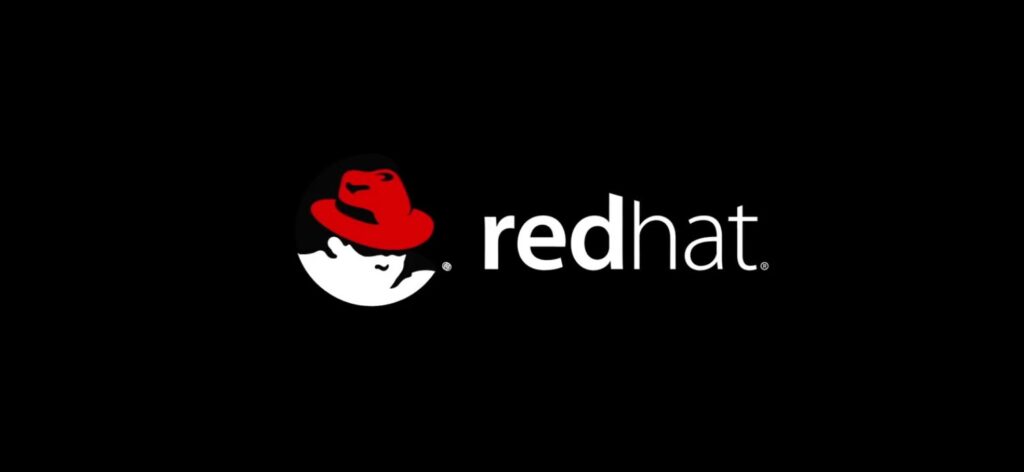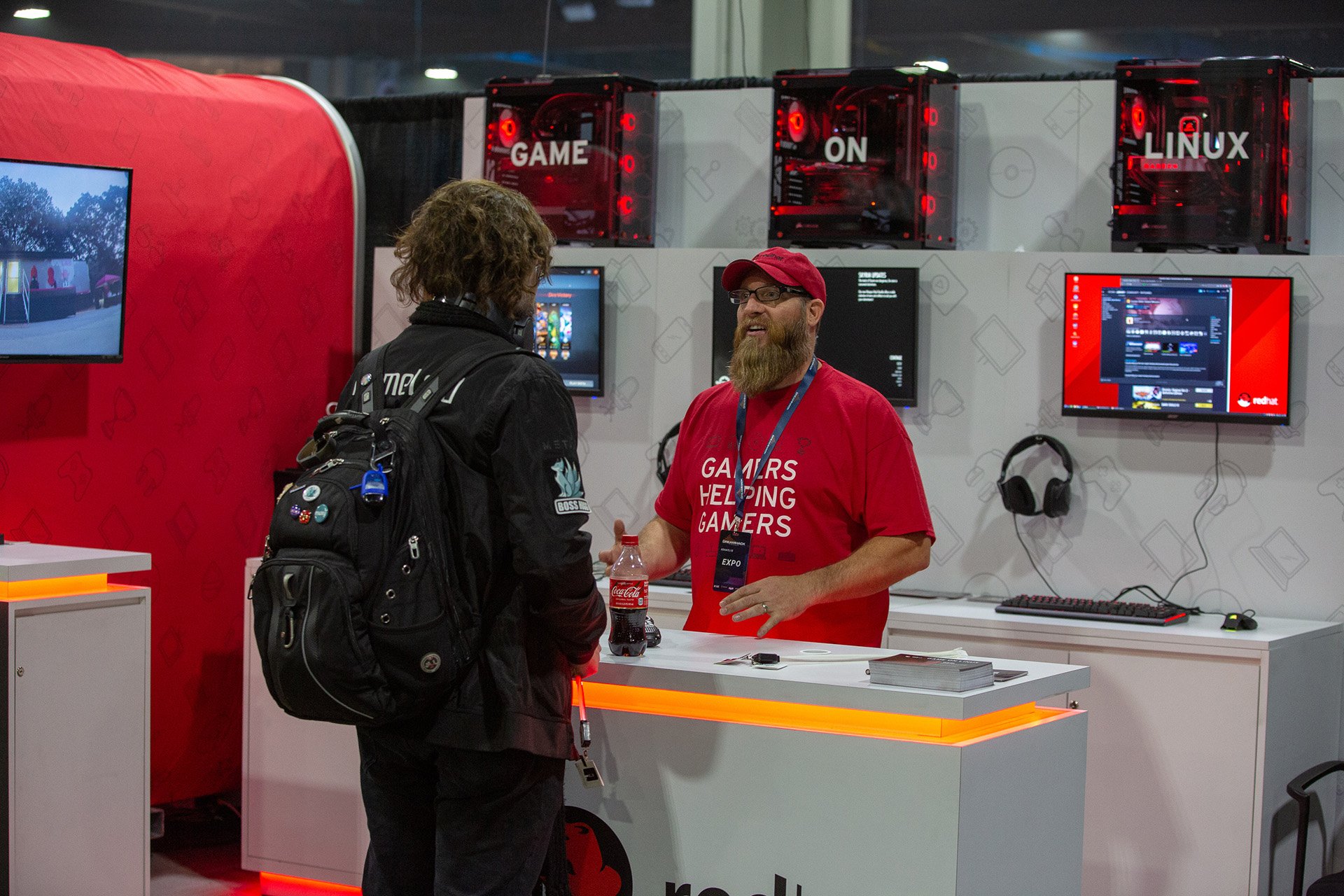
Red Hat is probably not a company that comes to mind when you think of major names in gaming, but on the Linux platform, they’ve been supplying open-source development tools to users for years, and sometimes, that coincided with the video game landscape. At DreamHack Atlanta, Red Hat went full-out on engaging with the gaming community and taking a bigger role in gaming for the Linux platform.
We caught up to Red Hat VP of Marketing Communications, Leigh Day, to talk about DreamHack Atlanta and Red Hat’s dedication to greater involvement with gaming and game development on their platform.
With such strong support of open-source development and tools, Red Hat has always been in proximity to gaming development, among other things. In recognition of that, Day claims the appearance of Red Hat at DreamHack and their most recent efforts are built upon bringing gamers and developers together.

“We want to build our brand’s affinity with the gaming community,” said Leigh. “It’s not really a hard business goal, so much as a community-focused goal. We definitely support and applaud others contributing to open-source and gaming communities, so it’s really that we’re out to celebrate all these like-minded people.”
To that end, Red Hat set out to be an active part of DreamHack, hoping to bring many folks in to talk to other Linux users both in the Red Hat community and in gaming development in general. It was the desire to have that conversation with fans and bring new ones together in one place that Red Hat was seeking. It was this community initiative that set the stage for Red Hat at DreamHack Atlanta.
“We love the idea of convening with like-minded people,” continued Leigh. “And we like the idea of certain parallels between the gaming communities and the Red Hat communities where they’re coming together and working towards a common goal. It’s not much different from forming teams in online gaming to sync up with players you like and win. And there’s definitely a major crossover between technologists who are interested in Red Hat or actively working on Red Hat and the gaming community. We find that a lot of our engineers and the people we work with are actively into gaming and we want to support them.”

Of course, it’s prime opportunity for Red Hat to show off the latest efforts they’ve been working on when it comes to their own technology as well. The company just came out with the Red Hat Enterprise Linux 8 beta platform, which was meant to streamline a lot of processes when it came to programming and accessibility. That said, Leigh says that even the new beta is a part of that community engagement.
“It’s the Red Hat way to launch betas out into the world so we can get eyes on testing and create visibility so that we can work closely with our communities and show off what’s to come instead of doing a hard launch,” said Leigh. Most certainly, DreamHack Atlanta was a great place to do just that for visiting newcomers and familiar programmers alike.
Linux still might not be the first thought that comes to mind when thinking of PC gaming, but that has been changing over time. The platform has shown itself to be incredibly versatile and stable, attracting many users around the world. The growing popularity of Linux is such that a recent IDC InfoBrief showed that Linux was the only OS that was growing and would continue to grow at a global level through 2018 and into the future. It’s a fact that Leigh Day delights in when it comes to the growing community.
“These days, it’s getting to be more common that most games are software-as-a-service model and so it doesn’t matter what the underlying operating system is in a lot of cases,” Leigh claimed. “In previous years, fewer applications were available on the Linux system, but as time goes on and tech gets more pervasive, it’s less about the operating system and more about what you’re able to run on your system. Linux is the fastest growing platform in the world with a huge developer following and one of our missions is to create more affinity with those developers to develop on our platform. Fortunately, we’re seeing it happen a lot with our open-share platform.”
Leigh Day actually came from a background in the PC gaming industry. Having been at Red Hat for 20 years now, she sees more than her fair share of parallels between users of Red Hat Linux and PC gaming communities.
“We’re definitely about inclusivity in our business and development and I think that’s something that appeals to both the majority of players and developers. Between gaming and Red Hat users, we like facilitating the opportunity of people to join up and share. It’s what we’re all about. That synergy has been very apparent with the gaming community.”
That said, Leigh hopes to see more out of these events and opportunities as more people take a chance on Linux and the Red Hat toolbox.
“If there was a business-level goal, it’s that we’d love to attract more developers to create on our platform,” Leigh explained. “Especially in regard to the gaming community, the more developers we can attract to our community the better. To that end, we’re trying to make our systems as open, accessible, and user-friendly as possible.”
Indeed, with appearances at events like DreamHack where BYOC (Bring-Your-Own-Computer) events are common place, Red Hat seems to be actively on its way to making itself known both inside and outside the Linux community. As Linux continues to grow, it may just be that we see more out both the platform and Red Hat carrying the Linux flag proudly into the gaming community.
Want to learn more about Red Hat? Be sure to check out the Red Hat website. You can also follow the company’s activities on Twitter and Facebook.
 GameDaily.biz © 2025 | All Rights Reserved.
GameDaily.biz © 2025 | All Rights Reserved.